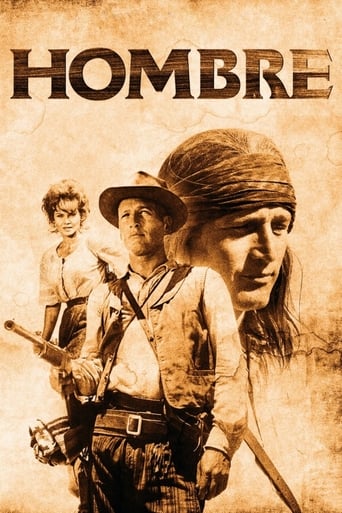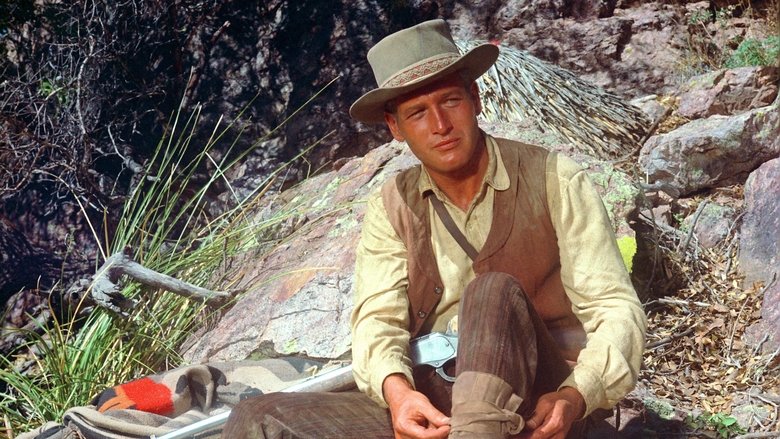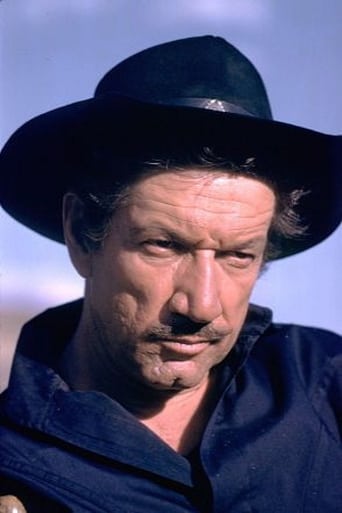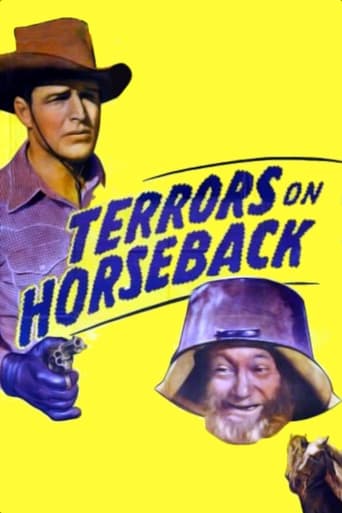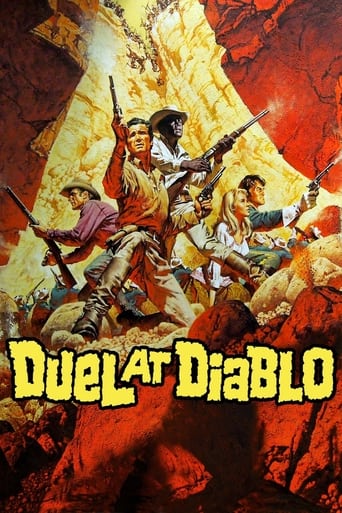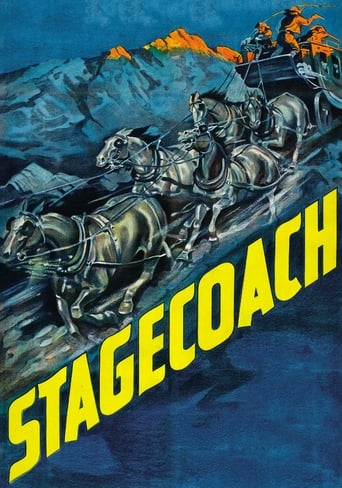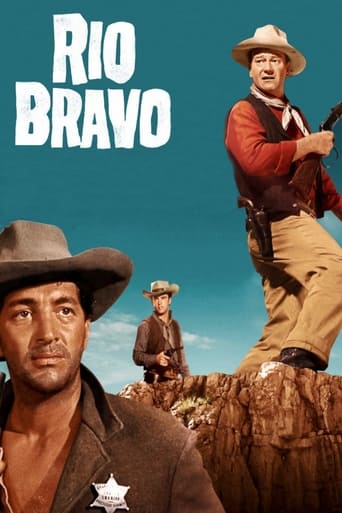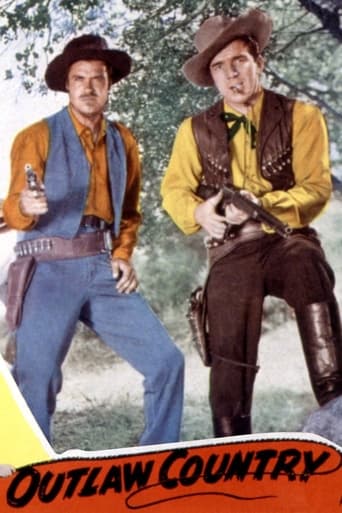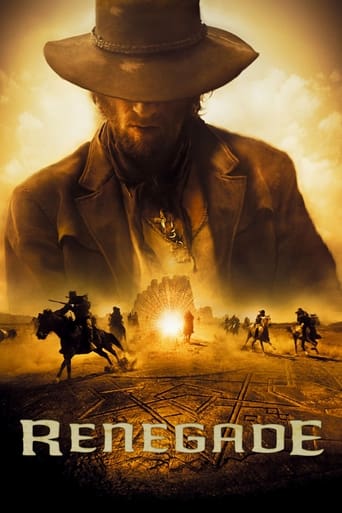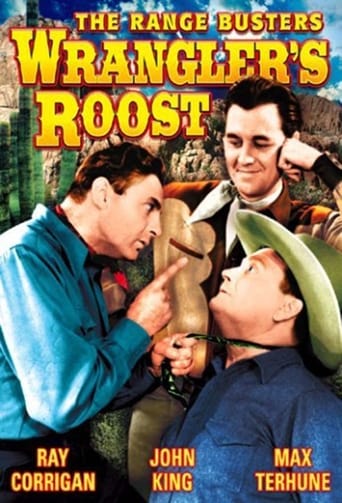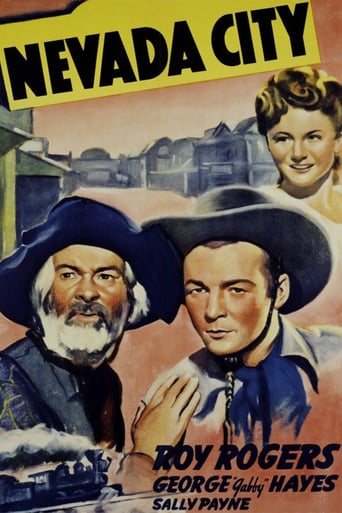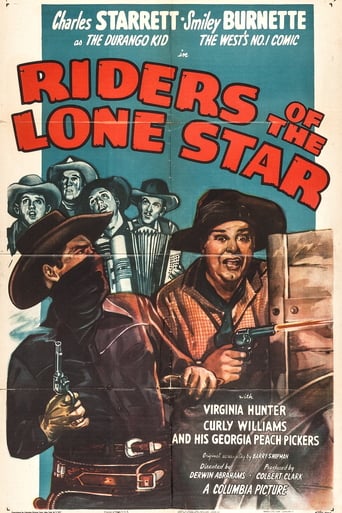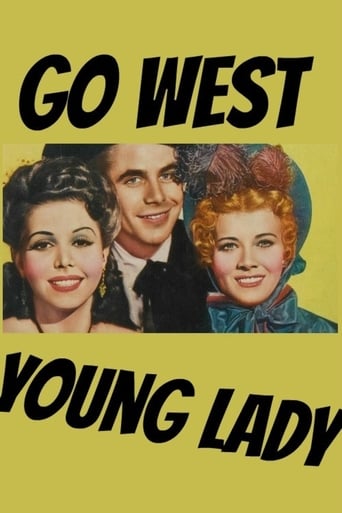Hombre (1967)
John Russell, disdained by his "respectable" fellow stagecoach passengers because he was raised by Indians, becomes their only hope for survival when they are set upon by outlaws.
Watch Trailer
Free Trial Channels
Cast


Similar titles
Reviews
What makes it different from others?
The film was still a fun one that will make you laugh and have you leaving the theater feeling like you just stole something valuable and got away with it.
It is not only a funny movie, but it allows a great amount of joy for anyone who watches it.
An old-fashioned movie made with new-fashioned finesse.
Released in 1967 and directed by Martin Ritt, "Hombre" is a Western starring Paul Newman as John Russell, a white man raised by Apaches on a reservation and thus disdained by the "respectable" stagecoach passengers traveling with him. Perhaps they'll respect him when he becomes their only hope for survival. The driver & passengers are played by Martin Balsam, Diane Cilento, Richard Boone, Fredric March, Barbara Rush, Peter Lazer and Margaret Blye."Hombre" is a gritty realistic mid-60s Western; a character study that stands the test of time. Seeing it today, it's hardly aged. Taken from Elmore Leonard's novel, the script effectively shows the illusion of high and low social standing: The proud are proud until uncontrollable events swiftly bring them to their faces; the decent are only decent until survival or lust can only be attained through indecency. This is a tale of survival and in the heat of life-or-death tribulation what's in one's heart comes to the fore.People complain that the climax leaves a sour taste, but it ends the way it must (see below).ADDITIONAL CAST: Skip Ward, Frank Silvera, David Canary, Val Avery and Larry Ward.The film runs 111 minutes and was shot mostly in Arizona, but also a couple scenes in Jean, Nevada and Bell Ranch, California.GRADE: A FURTHER COMMENTARY ***SPOILER ALERT*** (Don't read until watching the movie) John Russell tells the other passengers that they'll only survive their life or death situation by being very careful and shrewd. Ultimately, he decides to be UNcareful in order to save an unworthy uppity woman in response to Jessie's bold sympathy (at least she practiced what she preached). To survive, he relies on the inexperienced kid to take out the bandit while he shoots the main outlaw. Ironically, the kid's shot is blocked by the very woman Russell is trying to save.When the dust settles, the survivors are all revealed as seriously flawed one way or another, whether venal (Fredric March), arrogant (Barbara Rush) weak (Martin Balsam), green (the kid), morally dubious (Margaret Blye) or liberally naïve (Diane Cilento). The end leaves them speechless as unworthy sinners in the face of unmerited grace through Russell's bold sacrifice. They represent the viewer, you & me: We can take the grace offered us and live a life worthy of it or put it out of mind and continue in our folly. It is every person's plight.
Impressive movie, travelers in a stagecoach, and then by foot, no humor (the seeing of the legs was nice), no spoofing, delightful landscapes, realist relations, the director thought it in terms of drama. A drama with an exciting cast: Newman, March, Balsam, Boone, and the mellower blonde from 'The Wicker Man' (there, a teacher), astounding cinematography, and a good director, who does a work of exquisite craftsmanship, the fans have already quoted here the lines, the scenes; it's _unsurpassable, and should be acknowledged as the equal of more famous masterpieces. As with other masterpieces, it is offered the work itself.It's a drama; an action drama, if you will. It accomplishes the possibilities of a ripe age. Its maturity shouldn't be taken for granted, as other movies from the same age, or slightly later, don't have it.Delightful suspense, superior cinematography, awesome performances, great dialog, sharp characterizations, and the acknowledging can go on; the movie has a sense a freedom, and belongs in the genealogy of the A western (as represented by earlier movies starring Cooper, Gable, Peck, Lancaster, Douglas, Stewart), being also the meeting of the style of Actors Studio with a beloved genre, by the unleashed director and one of his fetish players (before he took on the spoofs of Cassidy, Bean, Bill, thus defining a wholly different approach, in the ironic, revisionist, New Hollywoodian western). This movie begins with the metaphor of the wild horses being led by one of them to water, where they get trapped. Ritt made a keen social drama.
The first part of the film, from the very beginning until the trip starts, is simply perfect. My favorite scenes are the one in which the main character is in the bar with two Apache fellows and the one in which intimidating Grimes gets his ticket for the stagecoach. If the movie had kept in the same path this would be one of the best Westerns ever made. It did not, though it is still a good Western. Both Paul Newman and Richard Boone did a very good job. Filmmaking is also remarkable, a very careful work. The screenplay explores competently the different moods, interests and backgrounds of each character. Although not in the same average level of the first part of the film, the trip also has amazing moments, both in the interaction between passengers and in the final conflict.
This is an example of what I have come to think of as the "Stagecoach plot", although it was not invented in John Ford's film of that name, nor is it confined to the Western genre. Maupassant's "Boule de Suif" was an early literary example, and other cinematic examples include Hitchcock's "The Lady Vanishes" set in a disguised Nazi Germany, "The Journey", set during the Hungarian Revolution, and "North-West Frontier", set in British India. The basic idea is that a disparate group of people are forced by circumstances to travel together in a single vehicle on a dangerous journey through hostile territory. As one might expect from a Marxist director like Martin Ritt, "Hombre" brings a revisionist slant to this basic plot. It is one of a number of Westerns from the fifties and sixties which sought to call into question the heroic "Myth of the West" and the assumptions (such as "white men good, Indians bad") on which many earlier Westerns had been based. The "hombre" of the title is John Russell, a white man who has been raised amongst the Apache. Upon hearing of his father's death, Russell returns to the white world to collect his inheritance. A sequence of events leads to him travelling in a stagecoach with a mixed group of others. When the truth about Russell, namely that he has been brought up by Indians, becomes known, he faces prejudice from the other passengers, who force him to sit outside with the driver. When the stagecoach is robbed, however, the others are forced to rely upon Russell's tracking skills to lead them to safety.In terms of plot there is nothing particularly ground-breaking about the film; what makes it "revisionist" is its treatment of Native Americans. Among the passengers on the coach are Dr Alexander Favor, an Indian agent, and his wife. The reason why the robbers hold up the coach is that their leader, Cicero Grimes, has discovered that the Favors are carrying a large amount of money. It transpires that Dr. Favor has embezzled this money, which was meant to buy food for an Apache tribe, with the result that the tribe have been hit by famine. Favor is outwardly a civilised, cultured intellectual, but his veneer of respectability only serves to disguise an underlying dishonesty and selfishness. It is ironic that a man like Favor affects to despise Russell as an uncivilised half-savage. This was the sixth and final film which Ritt made with Paul Newman. (I have only seen one of the others, "The Long Hot Summer"). Newman plays the leading role, and yet the amount of dialogue spoken by him is surprisingly small. Russell is a laconic man of action who prefers to speak through deeds and gestures rather than through words, in contrast to the garrulous Favor. Newman gives an excellent performance; although he does not say much, his is a commanding, authoritative presence who holds the audience's attention throughout. He receives good support from some of the other cast members, notably Fredric March as Favor, Richard Boone as the thuggish villain Grimes and Diane Cilento as Jessie, another passenger on the coach. The action takes place in the Arizona deserts, and the pale, bleak, sun- baked look of the film is appropriate to the location. The main colours are greys, dull greens and pale blues and browns. A few ends are left untied, especially the story of the feuding young married couple Billy and Doris. (Billy will play an important role in the denouement, but the story of his marriage to Doris, which seemed to play a major part in the early scenes, is neglected). Overall, however, this is a taut, well-made Western in which the differences between the good guys and the bad guys is rather more blurred than had often been the case in the genre. 8/10

